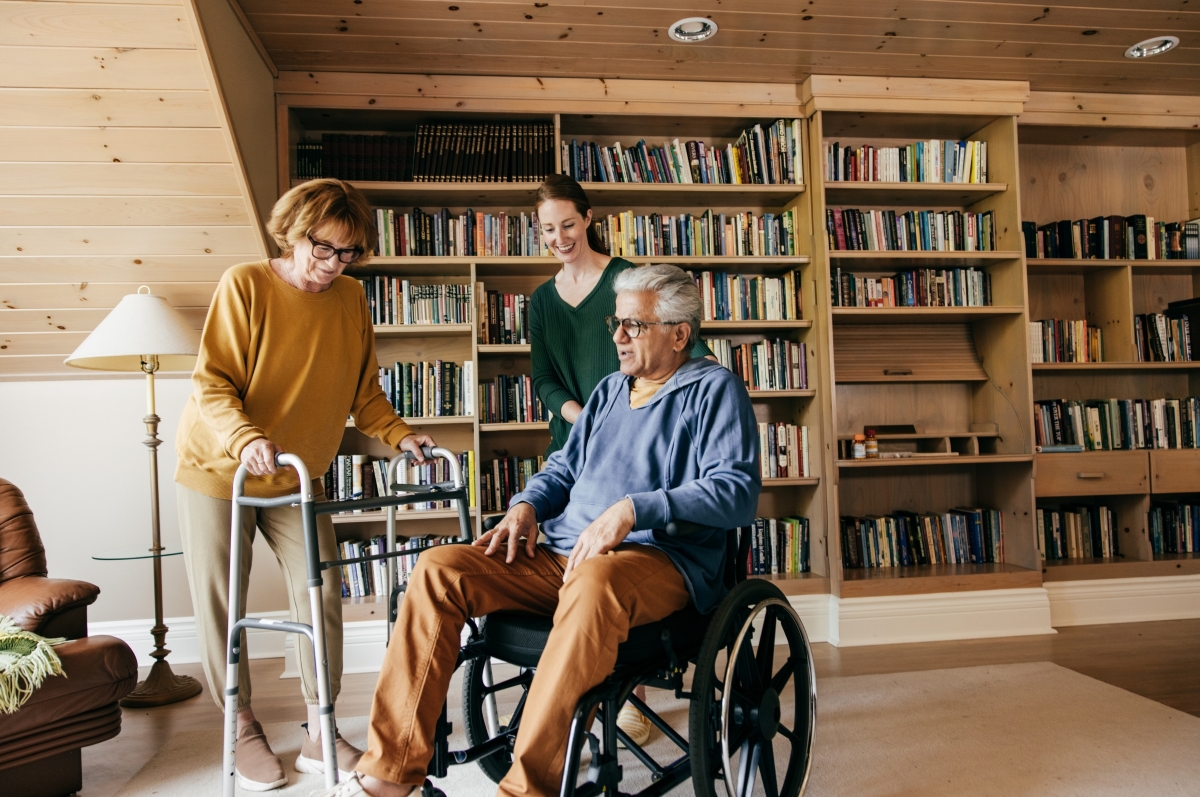What Should I Know About Aging Healthily and Happily?


Aging is a journey that brings unique challenges and opportunities. While many perceive it as a time of inevitable decline, the reality is quite different. Embracing the later years of life with vigor and positivity is possible and essential for a fulfilling and joyful existence. Understanding the nuances of aging, including the physical, mental, and emotional changes, is key to maintaining a high quality of life. By adopting a proactive approach to health and well-being, seniors can enjoy their later years with vitality and happiness.
Understanding Aging

Aging is a complex process that affects every aspect of our being. Biologically, it involves gradual changes in our body’s functions, from slower metabolism to decreased muscle mass and reduced skin elasticity. These changes can impact our physical health and emotional and psychological state.
Despite common misconceptions, aging does not mean a loss of vitality or happiness. It is a phase of life that can be rich with experiences and opportunities for growth. Understanding the biological and emotional shifts can help in adapting strategies to maintain health and happiness.
Physical Health Tips for Aging Gracefully

- Regular Exercise
Engaging in regular physical activity is crucial for maintaining health as we age. Low-impact exercises like walking, swimming, and yoga can improve mobility, boost cardiovascular health, and enhance overall well-being. Strength training, using light weights or resistance bands, helps preserve muscle mass and bone density, reducing the risk of falls and fractures.
Regular exercise also has profound benefits for mental health, including reducing symptoms of depression and anxiety. Incorporating various activities into your routine can help keep you engaged and motivated.
- Balanced Diet and Nutrition
Nutrition plays a vital role in aging healthily. A balanced diet of fruits, vegetables, lean proteins, and whole grains supports overall health. Key nutrients, such as calcium and vitamin D, are essential for maintaining bone health, while fiber helps with digestion and heart health.
Hydration is equally important. Drinking plenty of water throughout the day supports bodily functions and helps prevent dehydration, which is a common concern among older adults. Incorporating foods that support brain health, such as fatty fish, nuts, and berries, can also be beneficial in maintaining cognitive function.
- Preventive Health Care
Regular medical check-ups and screenings are essential for detecting and managing health issues early. Routine tests for blood pressure and cholesterol levels and cancer screenings can help prevent serious conditions or catch them in their early stages.
Vaccinations, including those for influenza and pneumonia, are also important for preventing illness. Healthcare professionals can help manage chronic conditions, such as diabetes and arthritis, to enhance quality of life and prevent complications.
Mental and Emotional Well-being

- Cognitive Health
Keeping the mind active is crucial for maintaining cognitive health. Engaging in activities such as puzzles, reading, or learning new skills can help keep your brain sharp. Social interactions and staying mentally stimulated are also important for cognitive health.
It’s important to be aware of the early signs of cognitive decline, such as memory loss or difficulty concentrating, and seek professional advice if needed. Early intervention can make a significant difference in managing cognitive health.
- Emotional Resilience
Aging often involves navigating significant life changes, such as retirement or losing loved ones. Developing emotional resilience is key to coping with these transitions. Techniques such as mindfulness, meditation, and deep breathing exercises can help manage stress and anxiety.
Maintaining a positive outlook and staying connected with friends and family can greatly enhance emotional well-being. Seeking support from counselors or support groups can also be beneficial during challenging times.
Social and Emotional Connections
- Building and Maintaining Relationships
Maintaining strong relationships with friends, family, and community members is vital for emotional health. Engaging in social activities and staying connected, even if it requires using technology, helps combat feelings of loneliness and isolation.
If distance or mobility issues make in-person visits challenging, consider using video calls and social media to stay in touch with loved ones.
- Volunteering and Giving Back
Volunteering is an excellent way to stay active and find purpose. Contributing to your community through various volunteer opportunities benefits others and provides a sense of fulfillment and accomplishment.
Finding ways to give back through formal organizations or informal acts of kindness can enhance your sense of purpose and connection with others.
- Embracing Technology
Technology can be a powerful tool for staying engaged and connected. Learning new tech skills, such as using social media or video conferencing tools, can help you stay informed and involved with the world around you.
Numerous online resources and classes are available to help you become more comfortable with technology and use it to enhance your life.
Adapting to Life Changes

- Retirement Planning
Retirement is a significant transition that requires careful planning. Financial planning, including budgeting and investment strategies, is essential to ensure a comfortable retirement. Additionally, finding new activities or hobbies to pursue after leaving the workforce can help maintain a sense of purpose and satisfaction.
- Downsizing and Living Arrangements
As you age, downsizing or changing your living arrangements may become necessary. Simplifying your living space can reduce stress and make daily tasks easier. Exploring different housing options, such as independent living or assisted living communities, can also provide a supportive environment that meets your needs.
- Coping with Loss and Grief
Dealing with the loss of a spouse or close friend can be particularly challenging. Understanding the grieving process and seeking support from friends, family, or professional counselors can help you navigate this difficult time.
It’s important to allow yourself to grieve and find healthy ways to cope with loss, whether through support groups, therapy, or personal reflection.
Embracing New Opportunities
- Hobbies and Lifelong Learning
Pursuing new hobbies or interests can be incredibly rewarding. Engaging in activities such as gardening, painting, or learning a new language keeps the mind active and provides a sense of joy and accomplishment. Lifelong learning opportunities, such as classes or workshops, can also offer mental stimulation and personal growth.
2. Travel and Adventure
Traveling in later years can be a great way to explore new places and experience different cultures. Planning trips that suit your health and mobility needs ensures a safe and enjoyable experience.
Travel can provide new perspectives and enrich your life, offering opportunities for relaxation and adventure.
Conclusion

Aging healthily and happily is about embracing the changes and opportunities that come with this stage of life. Seniors can enhance their quality of life by focusing on physical health through regular exercise and balanced nutrition, maintaining mental and emotional well-being, nurturing social connections, and adapting to life changes. Embracing new hobbies and opportunities can further enrich one’s experiences. With the right approach and mindset, the journey of aging can be one of vitality, purpose, and joy.





